
Wikipedia began with its first edit on 15 January 2001, two days after the domain was registered by Jimmy Wales and Larry Sanger. Its technological and conceptual underpinnings predate this; the earliest known proposal for an online encyclopedia was made by Rick Gates in 1993, and the concept of a free-as-in-freedom online encyclopedia was proposed by Richard Stallman in 1998.

A wiki is a hypertext publication collaboratively edited and managed by its own audience directly using a web browser. A typical wiki contains multiple pages for the subjects or scope of the project and could be either open to the public or limited to use within an organization for maintaining its internal knowledge base.

The Portuguese Wikipedia is the Portuguese language edition of Wikipedia, the free encyclopedia. It was started on 11 May 2001. The word "lusophone" refers to a country or people whose official language is Portuguese. In addition to being the sixth most accessed website in the world, Wikipedia is the fifteenth most accessed website in Brazil and the sixth most accessed in Portugal. As of July 2022, it is the 18th largest Wikipedia by article count, containing 1,093,878 articles.
Digital Universe was a free online information service founded in 2006. The project aimed to create a "network of portals designed to provide high-quality information and services to the public". Subject matter experts were to have been responsible for reviewing and approving content; contributors were to have been both experts and the public.
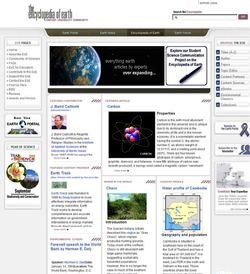
The Encyclopedia of Earth is an electronic reference about the Earth, its natural environments, and their interaction with society. The Encyclopedia is described as a free, fully searchable collection of articles written by scholars, professionals, educators, and other approved experts, who collaborate and review each other's work. The articles are written in non-technical language and are intended to be useful to students, educators, scholars, and professionals, as well as to the general public. The authors, editors, and even copy editors are attributed on the articles with links to biographical pages on those individuals.
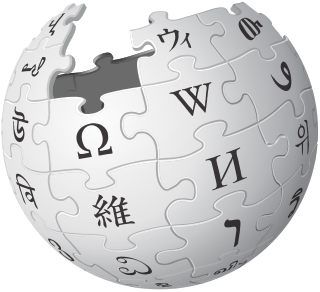
Wikipedia is a multilingual free online encyclopedia written and maintained by a community of volunteers through open collaboration and a wiki-based editing system. Individual contributors, also called editors, are known as Wikipedians. Wikipedia is the largest and most-read reference work in history. It is consistently one of the 10 most popular websites ranked by the Similarweb and former Alexa; as of 2022, Wikipedia was ranked the 7th most popular site. It is hosted by the Wikimedia Foundation, an American non-profit organization funded mainly through donations.

Den Store Danske Encyklopædi is the most comprehensive contemporary Danish language encyclopedia. The 20 volumes of the encyclopedia were published successively between 1994 and 2001; a one-volume supplement was published in 2002 and two index volumes in 2003. The work comprises 115,000 articles, ranging in size from single-line cross references to the 130-page entry on Denmark. The articles were written by a staff of about 4,000 academic experts led by editor-in-chief Jørn Lund. Articles longer than a few dozen lines are signed by their authors. Many articles are illustrated.

The reliability of Wikipedia concerns the validity, verifiability, and veracity of Wikipedia and its user-generated editing model, particularly its English-language edition. It is written and edited by volunteer editors who generate online content with the editorial oversight of other volunteer editors via community-generated policies and guidelines. Wikipedia carries the general disclaimer that it can be "edited by anyone at any time" and maintains an inclusion threshold of "verifiability, not truth". This editing model is highly concentrated, as 77% of all articles are written by 1% of its editors, a majority of whom have chosen to remain anonymous. The reliability of the project has been tested statistically through comparative review, analysis of the historical patterns, and strengths and weaknesses inherent in its editing process. The online encyclopedia has been criticized for its factual reliability, principally regarding its content, presentation, and editorial processes. Studies and surveys attempting to gauge the reliability of Wikipedia have mixed results, with findings varied and inconsistent. Wikipedia's reliability was frequently criticized in the 2000s but has improved over time; it has been generally praised in the late 2010s and early 2020s.
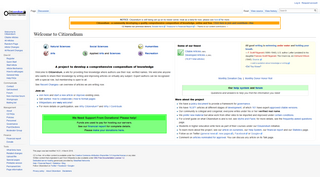
Citizendium is an English-language wiki-based free online encyclopedia launched by Larry Sanger, co-founder of Nupedia and Wikipedia.

Scholarpedia is an English-language wiki-based online encyclopedia with features commonly associated with open-access online academic journals, which aims to have quality content in science and medicine.

The Cult of the Amateur: How Today's Internet Is Killing Our Culture is a 2007 book written by entrepreneur and Internet critic Andrew Keen. Published by Currency, Keen's first book is a critique of the enthusiasm surrounding user-generated content, peer production, and other Web 2.0–related phenomena.

WikiPilipinas is an online, free content website which bills itself as a combination "non-academic encyclopedia", web portal, directory and almanac for Philippine-based knowledge. Like Wikipedia, it contains various articles on Philippine-related topics. Unlike Wikipedia, many of the articles cover topics that would otherwise be deemed unencyclopedic by the stricter Wikipedia. The service for example, promotes the concept of original research and eschews the larger encyclopedia's neutral point-of-view principle.

The history of wikis began in 1994, when Ward Cunningham gave the name "WikiWikiWeb" to the knowledge base, which ran on his company's website at c2.com, and the wiki software that powered it. The wiki went public in March 1995, the date used in anniversary celebrations of the wiki's origins. c2.com is thus the first true wiki, or a website with pages and links that can be easily edited via the browser, with a reliable version history for each page. He chose "WikiWikiWeb" as the name based on his memories of the "Wiki Wiki Shuttle" at Honolulu International Airport, and because "wiki" is the Hawaiian word for "quick".

Knol was a Google project that aimed to include user-written articles on a range of topics. Lower-case, the term knol, which Google defined as a "unit of knowledge", referred to an article in the project. Knol was often viewed as a rival to Wikipedia.
Deletionism and inclusionism are opposing philosophies that largely developed within the community of editors of the online encyclopedia Wikipedia. The terms reflect differing opinions on the appropriate scope of the encyclopedia and corresponding tendencies either to delete or to include a given encyclopedia article.
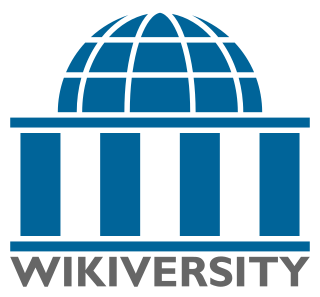
Wikiversity is a Wikimedia Foundation project that supports learning communities, their learning materials, and resulting activities. It differs from Wikipedia in that it offers tutorials and other materials for the fostering of learning, rather than an encyclopedia; like Wikipedia, it is available in many languages.

Lawrence Mark Sanger is an American Internet project developer and philosopher who co-founded the online encyclopedia Wikipedia along with Jimmy Wales. Sanger coined the name and wrote much of Wikipedia's original governing policy, such as "Neutral point of view". Sanger has worked on other online projects, including Nupedia, Encyclopedia of Earth, Citizendium, WatchKnowLearn, Reading Bear, Infobitt, Everipedia, the Knowledge Standards Foundation and the encyclosphere. He also advised blockchain company Phunware and the nonprofit online American political encyclopedia Ballotpedia.
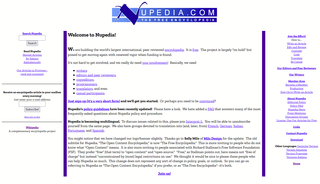
Nupedia was an English-language, online encyclopedia whose articles were written by volunteer contributors with appropriate subject matter expertise, reviewed by expert editors before publication, and licensed as free content. It was founded by Jimmy Wales and underwritten by Bomis, with Larry Sanger as editor-in-chief. Nupedia operated from October 1999 until September 2003. It is best known today as the predecessor of Wikipedia, but Nupedia had a seven-step approval process to control content of articles before being posted, rather than live wiki-based updating. Nupedia was designed by committee, with experts to predefine the rules, and it had only 21 articles in its first year, compared to Wikipedia posting 200 articles in the first month, and 18,000 in the first year.

Wikipedia is a free, web-based, collaborative and multilingual encyclopedia website and project supported by the non-profit Wikimedia Foundation. It has more than 48 million articles written collaboratively by volunteers around the world. Almost all of its articles can be edited by anyone with access to the site, and it has about 100,000 regularly active contributors.















